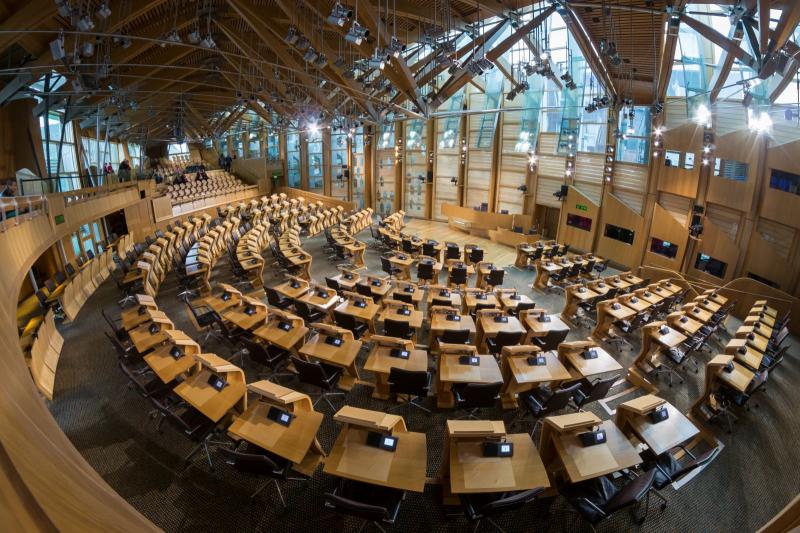Reflecting on participation in the Citizens’ Jury at the Scottish Parliament & the idea of expertise
Posted by Kirsty Blackstock on Thursday 25 April 2019

Last month I had the privilege of contributing to The Scottish Parliament’s inaugural Citizens’ Jury held 29-31st March 2019, in the heart of our Parliament Building. Twenty-two citizens, randomly selected from across Scotland, came together to deliberate on the question, “How should funding and advice for land management be designed to help improve Scotland’s natural environment?” The Jury is designed to allow these citizens to question six sets of invited ‘experts’ about different dimensions of this question and come together to make recommendations to the Environment, Climate Change and Land Reform Parliamentary Committee. I was asked to speak, as one of the invited experts, about “Scotland’s Multiple Land-Uses: Objectives, Benefits and Trade-offs”. This was a challenging proposition given that the information had to be accessible to people of all backgrounds and delivered in less than ten minutes.
I decided to highlight issues associated with the way we make decisions about land use – from the level of the individual land manager to the multiple ways in which social norms, practices and obligations (both formal and informal) operate to constrain or channel these individuals’ land use choices. The subsequent questioning was wide ranging, spanning community right-to-buy to international trade agreements. It was impossible to do justice to these questions due to both time constraints and the limitations of my knowledge – working at the James Hutton Institute has given me a broader understanding of these topics than a more conventional career as an environmental sociologist would have done, but I was stretched way beyond my area of expertise. Ultimately, the exercise confirmed the ethos behind deliberative democratic processes such as citizens’ juries – that expertise is not only held by academics but distributed widely throughout society. Of course, those who were able and willing to give up their weekend to debate this question are likely to be motivated and interested in the topic. However, I’m not talking about knowledge of the topic, but the ability to question evidence, reframe questions and challenge conventional thinking. As a sociologist, I was trained to ask why things are so, and how they could be otherwise (to paraphrase C. Wright Mills). It was refreshing, as well as more than a little challenging, to be on the receiving end of such thinking instead of promoting it.
By the end of the first morning, we’d already thought about the historical roots and routes of agriculture, the influence of technology and trade, the morality of land use choices and the use of social media to support local good practice. It was challenging to stay ‘neutral’, as requested by the moderator; knowledge can be used strategically to advance different perspectives and interests, and all facts are interpreted and woven into narratives, which have consequences for how a problem is understood and prioritised. Giving a flavour of the different arguments can feel quite ‘vanilla’ in such circumstances and - as one juror good-naturedly complained - left the jurors “none the wiser as to the actual answer”. Therefore, my advice for similar exercises would be to reframe the language - to remove the false dualism between ‘expert’ and ‘citizen’ and instead give voice to the process of co-constructing a deeper mutual understanding of the issues. This might mean introducing the witnesses as people with specialist knowledge rather than ‘experts’ and designing more interactive processes whereby jurors and witnesses share understandings and test out ideas. To some extent, this was already happening during the Citizens’ Jury I attended, despite a framework that separated ‘expert’ and ‘citizen’.
I look forward to seeing the final product of this process of deliberative democracy in action and hearing how the Environment, Climate Change and Land Reform Parliamentary Committee respond to the jury’s recommendations. At this moment, facing the challenges of a possible BREXIT, it is heartening to see our Parliament reinvigorating citizen participation in environmental and land use policy, which will affect both current and future generations.
Interviews with some of the citizens who participated are online at the Twitter site of the Scottish Parliament, https://twitter.com/scotparl, https://twitter.com/ScotParl/status/1111636986404790273, and the interview with Geoff Squire of James Hutton Institute is at https://twitter.com/ScotParl/status/1112384059550896129 .






Comments
Post new comment